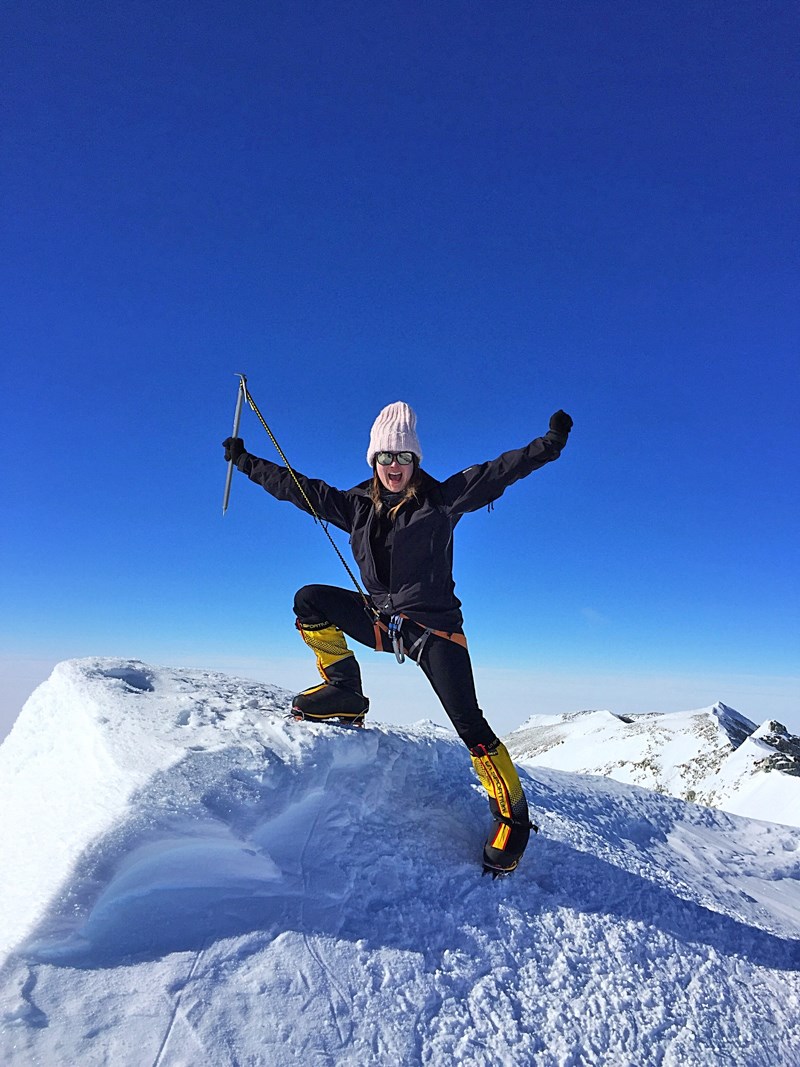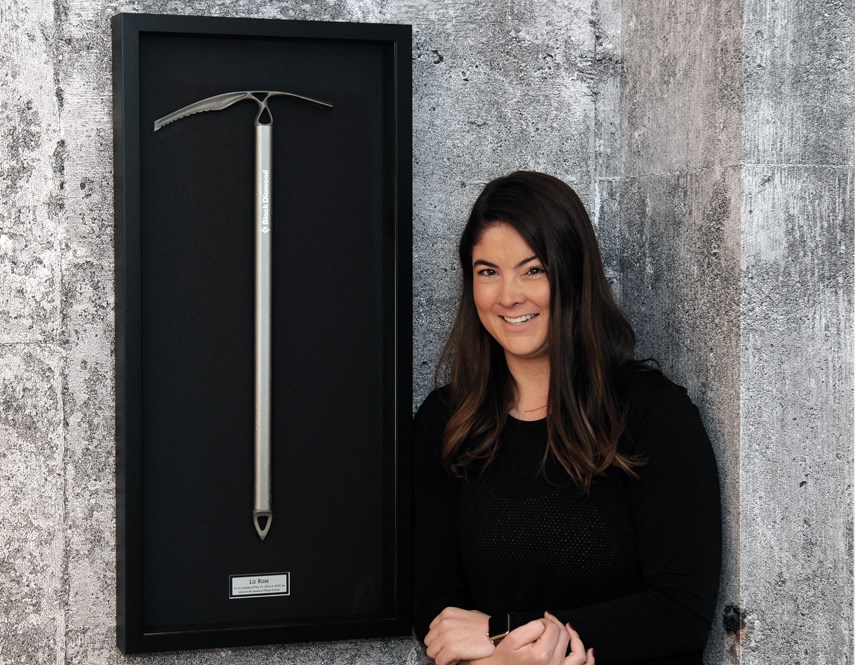Just count to seven.
That’s what North Vancouver’s Elizabeth Rose tells herself when things get tough on the mountain slopes or trails she has been traversing for the last several years.
“Basically I just told myself, ‘One foot in front of the other,’ and focused on short goals rather than if it was going to be 15 more hours,” Rose explains regarding her hiker’s mentality.
“I just focused on the next couple steps and sometimes I’d resort to counting. Like, I’d count seven steps and then make it to the next seven steps and just take it one bit at a time.”
Her methods may appear highly precise, but for a good reason – these are no mere backcountry trails she’s hiking after all, but the world’s tallest peaks and valleys.
At the end of October, Rose will fly to Australia and the number seven will be on her mind in a whole different way.
While there she won’t be indulging in the land Down Under’s penchant for sandy beaches and sunny coastline – she will be trekking to the top of Mount Kosciuszko, a mountain located in a snowy range in the state of New South Wales.
Mount Kosciuszko is more than 7,000 feet in elevation, but Rose is unfazed by the potentially challenging trek
to the top.
It’ll be her seventh such journey in the last two and a half years, and she’s more than ready.

For the last few years, Rose has been on a mission to climb the Seven Summits, which entail the seven highest mountains and peaks on each of the world’s seven continents.
Regarded as a mountaineering challenge of the highest order, her successful completion of Mount Kosciuszko in November could potentially make her the youngest Canadian, at 26 years old, to have conquered the Seven Summits.
“It’s definitely been quick,” Rose says about having climbed Tanzania’s Mount Kilimanjaro, Argentina’s Aconcagua, Antarctica’s Mount Vinson, Alaska’s Denali, Russia’s Mount Elbrus, and, of course, Everest all in less than three years.
“Most people definitely don’t do them as fast as I have. After Everest, I found out I could become the youngest Canadian to do them all and training-wise I just thought it’d be best, while I’m fit for them now, to just do them while I can.”
A recent convert to the joys of trekking, Rose says her forays into summit climbing in the last few years have left life-long impressions on her.
“I’ve liked them all for different reasons, so it’s tricky to say,” she says.
“Everest was the most surreal, incredible experience I could ever ask for – but Antarctica was amazing. I’ve loved them all and it’s been really neat because they’ve all been so different.”
She describes a certain day hiking Everest that was particularly clear, where “you could see for miles and miles” and the sense of wonder she had at being on the highest point on earth.
She also talks about the intensity of trekking in Antarctica.
“Antarctica was unique because it was 24 hours of daylight, so that was definitely an adjustment,” Rose says with a laugh.
The summit treks are also massive undertakings. With the exception of Mount Kosciuszko, all mountains are more than 15,000 feet in elevation and are by no means for novice hikers.
Amazingly, Rose only started her Seven Summit journey after venturing to climb Mount Kilimanjaro with her father a few years ago.
“We just though it would be a fun father-daughter adventure after I finished school before starting work,” she explains. “We did that and then I fell in love with hiking and trekking.”
She recalls standing at the highest point of the African continent, surrounded by nature, immersed in different cultures, and totally forgetting about daily life.
“It was an incredible experience,” she says.
Shortly thereafter, an Everest trek alongside her mother cemented her desire to hike all Seven Summits.
Rose has turned into a veteran hiker in a few short years. She works with a personal trainer several times a week and has worked with a sports psychologist as well.
“It’s a lot of suffering,” she explains about the need to develop mental toughness when it comes to powering through a challenging trek. “You’re on these expeditions for 21 days or two months, depending on the mountain, and it’s freezing cold, and it’s like you’re constantly suffering. I get really bad altitude sickness, so I’m sick a lot of the times with headaches and nausea.”
Her trick is simple. She stays positive and tells herself how lucky she is to be there.
She also feels lucky to be sharing her journey with a charitable cause she’s passionate about.
Rose will be hoisting the flag on behalf of Canuck Place Children’s Hospice when she gets to the top of Mount Kosciuszko, a move designed to raise money for the organization’s recreation therapy program.
“I really thought that connecting my climb to a cause like Canuck Place would really bring a sense of purpose to my trip and help raise awareness for such an incredible organization,” she says.
The flag will be emblazoned with the signatures and wishes of the children and families at Canuck Place.
More information on Rose’s Canuck Place campaign can be found at canuckplace.org/lizrose.
After she makes her final ascent to the top and ends her Seven Summit campaign she hopes to hang up the hiking boots for a time and instead pick up the almighty pen.
“In the new year my focus is I’m going to write a book about my journey,” she says. “I’ve kept a journal on all my trips, that’s the next goal. ... I want it to be inspirational for young girls or anyone – but that’s my target audience.”
While she wants to share her story on how her Seven Summit trek came about, her only regret is that it had to come to end at some point.
Asked if she ever felt burnt out or discouraged while in the middle of one of her global pursuits her answer is always upbeat and positive.
“No, not at all,” she says. “I normally never want them to end, and now that I’m going to be done the seven I don’t want it to end either. I wish there was many more.”
But then, suddenly, as if remembering how much more is out there besides the Seven Summits, she lights up:
“And there is many more mountains.”



